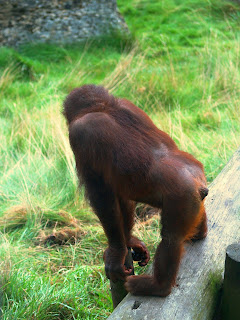Palm oil is an ingredient that is almost ubiquitous in foods and many house-hold products. The problem is that it is produced in many parts of the world by programmes of deforestation to accommodate the Palm oil plantations. Many of the western companies that use palm oil have realised that this is not a good look (especially as it endangers photogenic animals like the Orang-utan) and they have undertaken to reduce (or even phase out) their impact on deforestation. A recent report suggests, however, that very few of the food companies who publicly trumpet their undertaking have achieved much in relation to their avowed aims (https://www.theguardian.com/environment/2020/jan/17/biggest-food-brands-failing-goals-to-banish-palm-oil-deforestation). They talk the talk without walking the walk.
This blog may help people explore some of the 'hidden' issues involved in certain media treatments of environmental and scientific issues. Using personal digital images, it's also intended to emphasise seasonal (and other) changes in natural history of the Swansea (South Wales) area. The material should help participants in field-based modules and people generally interested in the natural world. The views are wholly those of the author.
Subscribe to:
Post Comments (Atom)
-
I n the UK and US, a pparently popular and successful vegan/vegetarian restaurants are reportedly closing or adding meat to their menus ( ...
-
Early ripening fruit may seem convenient but some folk think it confirms environmental stress. There's also a possibility th...


%20mating%20NWCW.jpg)


No comments:
Post a Comment